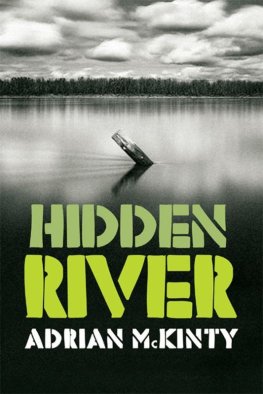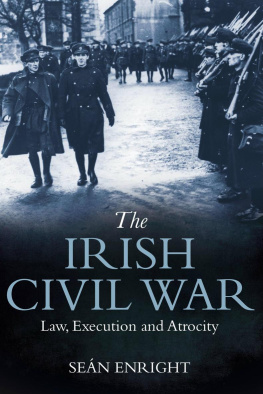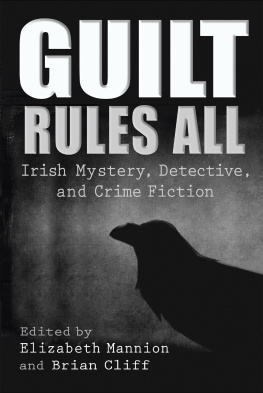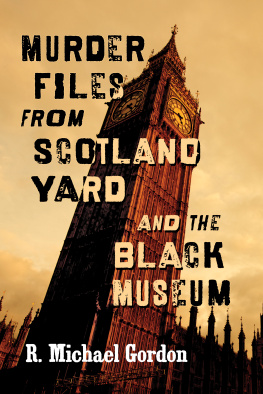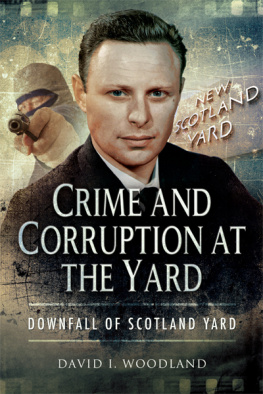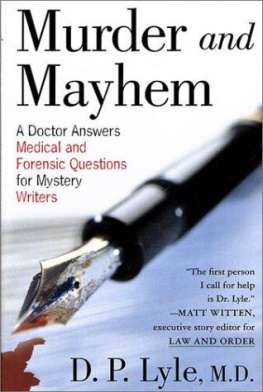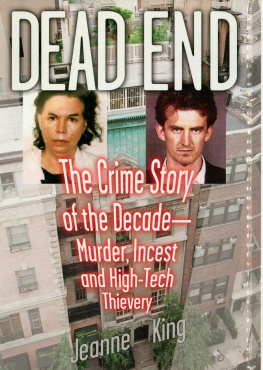Adrian McKinty - The Dead Yard
Here you can read online Adrian McKinty - The Dead Yard full text of the book (entire story) in english for free. Download pdf and epub, get meaning, cover and reviews about this ebook. genre: Detective and thriller. Description of the work, (preface) as well as reviews are available. Best literature library LitArk.com created for fans of good reading and offers a wide selection of genres:
Romance novel
Science fiction
Adventure
Detective
Science
History
Home and family
Prose
Art
Politics
Computer
Non-fiction
Religion
Business
Children
Humor
Choose a favorite category and find really read worthwhile books. Enjoy immersion in the world of imagination, feel the emotions of the characters or learn something new for yourself, make an fascinating discovery.

- Book:The Dead Yard
- Author:
- Genre:
- Rating:4 / 5
- Favourites:Add to favourites
- Your mark:
- 80
- 1
- 2
- 3
- 4
- 5
The Dead Yard: summary, description and annotation
We offer to read an annotation, description, summary or preface (depends on what the author of the book "The Dead Yard" wrote himself). If you haven't found the necessary information about the book — write in the comments, we will try to find it.
The Dead Yard — read online for free the complete book (whole text) full work
Below is the text of the book, divided by pages. System saving the place of the last page read, allows you to conveniently read the book "The Dead Yard" online for free, without having to search again every time where you left off. Put a bookmark, and you can go to the page where you finished reading at any time.
Font size:
Interval:
Bookmark:

Adrian McKinty
The Dead Yard
The second book in the Michael Forsythe series, 2006
My sweet enemy was, little by little, giving over her
great wariness But Death had his grudge against me
and he got up in the way, like an armed robber, with a
pike in his hand.
J. M. Synge, Poems and Translations from Petrarch (1906)
Dawn over the turquoise shore of Africa and here, under the fractured light of a streetlamp, brought to earth like some hurricaned palm, I woke before the supine ocean amidst a sea of glass and upturned bus stands and the wreck of cars and looted stores.
The streets of Playa de las Americas were flowing with beer and black sewage and blood. Smoke hung above the seashore and the smell was of desolation, decay, the burning of tires and fuel oil. The noise of birds, diesel engines, a dirge-like siren, a helicopter, voices in Spanish over a loudspeaker- all of it more than enough hint of the breakdown in the fragile rules of the social contract.
I was sitting up and adjusting to the light and the growing heat when a kid hustled me under cover and the riot began again.
Five hundred British football hooligans, three hundred and fifty Irish fans, all of them on this island at the same time for a friendly match between Dublins Shamrock Rovers and Londons Millwall.
A riot.
I wouldnt say Id been expecting that but I wouldnt say I was that goddamn surprised either.
Some people go through their lives like a mouse moving through a wheat field. Theyre good citizens, they pay their taxes, they contribute to society, they have kids and the kids turn them into responsible adults. They create no stir, cause no fuss, leave no trace. When theyre gone people speak well of them, sigh, shrug their shoulders, and shed a tear. They avoid chaos and it avoids them.
Perhaps most people are like this.
But not me.
Youd notice me in the wheat field. Youd notice me because the field would be on fire or the farmer would be running after me with a gun.
The Bible says that man is born to trouble as the sparks fly upward. Well, trouble followed me like sharks trailing a slave ship. Even when I tried to get away it was there swirling in a vortex around me.
Even when I tried to get away. Spain. Tenerife, to be exact, the largest of the Canary Islands off the coast of Morocco. Its a hell of a long flight from Chicago but the FBI wont let me go near Florida or the Caribbean. Seamus Duffy, the head of the Irish mob in New York City, has had a contract out on me for five years for killing his underboss Darkey White and testifying against Darkeys crew.
With that in mind you cant be too careful about where you take your vacation. So OHare, JFK, and seven hours to Tenerife for a wee bit of R & R and of course this is what bloody happens.
Brian, are you all right? the English kid asked. Pale skin, sunburned, wearing a Millwall shirt and white jeans.
I stared at him. My name had been Brian ONolan since Id moved to Chicago in January. It still didnt seem right.
Im ok, I said. I must have fallen asleep. What the hell is happening?
The riots starting up again. Those Irish bastards have all gotten ball bearings from somewhere.
I gave him a look.
One of those looks.
My speciality.
Oh, by Irish bastards, I meant, uh, I meant no offense by the way, he stammered.
I didnt say anything. I almost felt more American now than Irish. I ducked as stones and ball bearings landed in the shop fronts. Pieces of dark lava and Molotov cocktails flew back from the English side.
The London lads were drunk and the Dublin boys had taken off their shirts, looking like ghosts flitting nervously behind the barricades.
The riot progressed. A shop window caved in under a big rock, a roof collapsed, a car went up in flames. A big English bruiser trundled along a wheely-bin filled with gasoline and halfway down the hill, he burned some scrunched-up newspaper and tossed it after. The bin exploded and he caught fire.
Jesus.
The colors fused: green banana skins, inky smoke, crimson blood, the blue Atlantic and iodine sky merging in the west. Over by the dunes amazed surfers were wondering if the town was on fire, and later it was, as the hotel burned and the surfers and the other noncombatants decided to be long gone.
At dusk the Spanish police finally got their act together and turned fire hoses on the two sides. The Micks started an outof-date football chant: Francisco Franco is a wanker, and the English side trumped that with What Happened to the Armada? Singing was general over the lines now and each song was echoed back and as full night fell, everyone got teary-eyed and guilt-ridden and we had a truce, the impromptu leaders meeting up in one of the main squares under a flag of armistice.
The shadows lengthened and there was a toast. A drink. A parley. And it was agreed then that whatever differences existed between the Irish and the English soccer fans, here, fifteen hundred miles from the British Isles, the story wasnt terrorism or the Famine or Enniskillen or Bloody Sunday. It was August 1997 now, there was a new British prime minister, and a new IRA cease-fire brewing that extended even unto football hooligans. Aye, we could see that out here with our fresh perspective. Here in Tenerife under the black sky of Creation, where Columbus set out to enslave half the world, where Darwin came on the Beagle, where Nelson lost his arm, and where they still made the same dark Canary drunk by Fal-staff and Sir Toby Belch. Where we were all away from gloomy Albion and we could accept a new vision of a new Earth with sunshine and cheap food and Swedish girls and where we could see the folly of doing evil unto ones brother. The drunken leaders deciding that harmony would reign forever between kinfolk and that the riot between the Brits and Paddies was over; and from now on we would concentrate on the real enemies: German tourists and the Spanish police.
So began the second phase.
* * *This time, though, I wanted no part of it, especially when I saw the big NATO war helicopters landing beyond the cliffs and out of them pouring scores of paramilitary cops from Madrid-tough bastards who came with machine pistols and gas and billy clubs that they used up in the Basque country against the ETA guerrillas. Me and the kid, an eejit called Goosey, slipped away from the drunken insurgents under the cover of darkness. We negotiated our way through the abandoned holiday villas and the half-built outlying hotels and the pink-shaded small pensions where a few British expats hid in the dark, having retired to Tenerife to escape the bad weather and (ironically) the growing yob culture of England.
Goosey, it turned out, was a bit of a mental case from some East London shitehole who wanted us to do a Clockwork Orange-style burglary on some of the pensions, nicking things and hurting people and generally raising a bit of hell, but I would have none of it. They might have shooters, I told Goosey, and Goosey thought this was entirely plausible and got discouraged from the idea.
Instead up we went into the lava fields and through the mangrove and the palm trees until wed climbed a thousand feet above the town. We slept in a barn among guano and baked hay and the sleep was the best since the riots had begun two days ago when three Millwall supporters had attacked some guy from Dublin and the peelers had allegedly beaten the near life out of them down at the cop shop. It had grown like a tropical storm, stores being looted and cars set ablaze and the climax came when the local jail had been stormed and the Millwall boys and a team of time-share crooks were let out and one person got himself shot in the shoulder by a peeler.
Next pageFont size:
Interval:
Bookmark:
Similar books «The Dead Yard»
Look at similar books to The Dead Yard. We have selected literature similar in name and meaning in the hope of providing readers with more options to find new, interesting, not yet read works.
Discussion, reviews of the book The Dead Yard and just readers' own opinions. Leave your comments, write what you think about the work, its meaning or the main characters. Specify what exactly you liked and what you didn't like, and why you think so.

